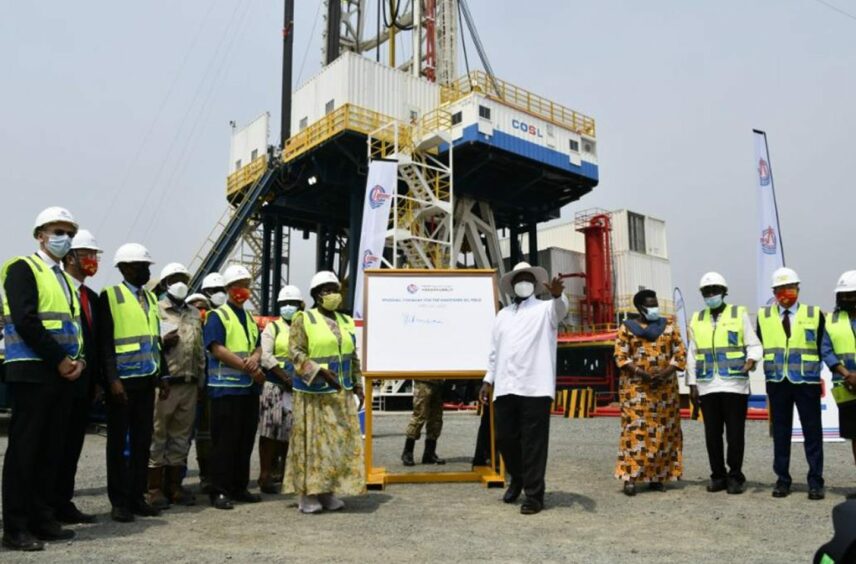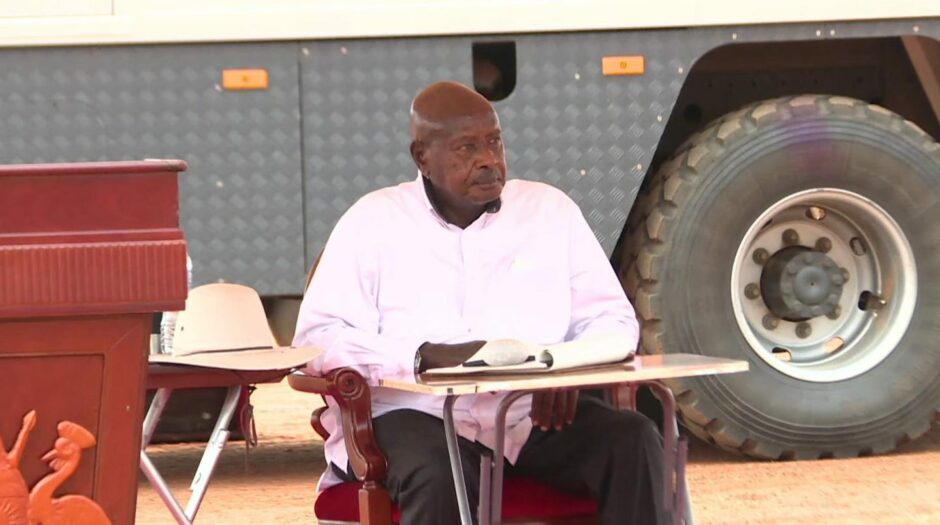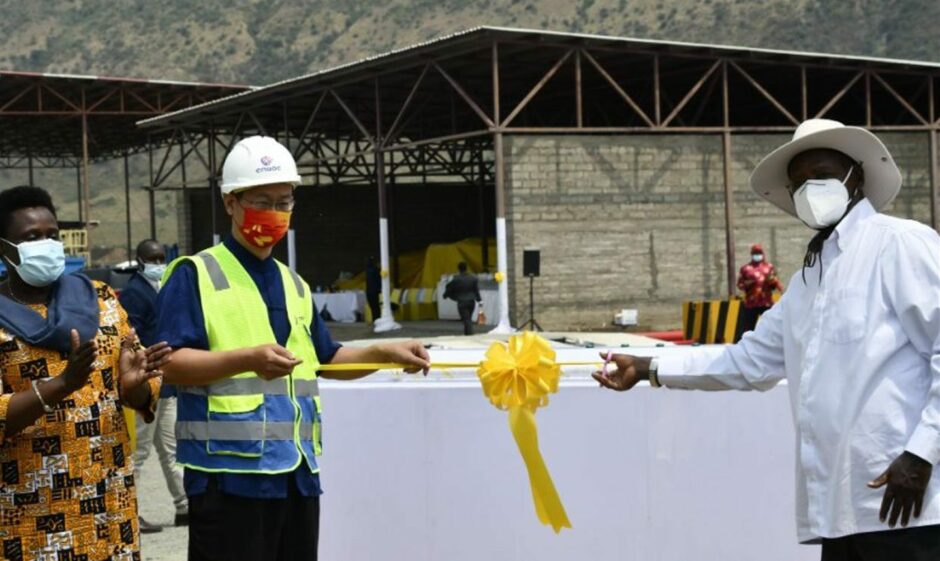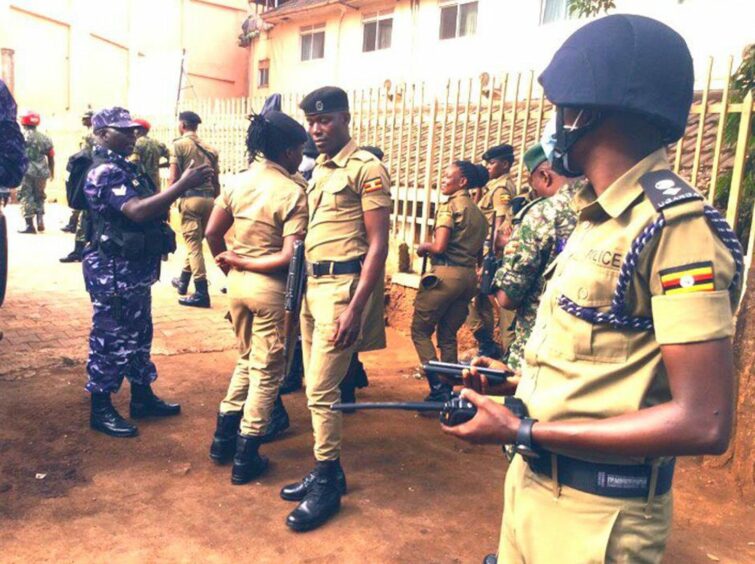
President Yoweri Museveni attended the launch of drilling in Uganda’s west today, but a crackdown on anti-pipeline activists in Kampala struck a difficult note.
Museveni expressed gratitude to the governments of China and France, which have both been supportive of Uganda’s plans.
This is in contrast with the European Parliament, which passed a resolution opposing the oil developments on the basis that they infringed human rights. “I told [the European Parliament] to go to hell!” Museveni said. “But I didn’t hear the French government making any trouble.”
Heritage Oil and Tullow Oil made the initial discoveries in Uganda, before selling out to TotalEnergies and CNOOC Ltd.
Uganda has a number of plans to produce power, he said. “We’re going to use wind power, solar power, hydropower but we will also use oil.” Even when oil is no longer needed for transportation or power, he said, “petroleum is needed for other products”.
The East African state has plans for more oil developments. Only 40% of the Albertine Graben has been explored, Museveni said. “We are going to look for more oil, we will end up with much more.”
Takeoff
CNOOC is the operator of the Kingfisher field, with China Oilfield Services Ltd (COSL) having provided the rig.
The LR8001 rig is the “strongest in the country”, said Petroleum Authority of Uganda (PAU) executive director Ernest Rubondo. It consumes around 6 MW of power, he said, equivalent to the consumption of Hoima.
Rubondo, talking at the spud ceremony, said Kingfisher had 560 million barrels in total, of which the operator would produce 33% over 20-25 years. It will reach peak production of 40,000 barrels per day for five years, with more barrels coming from three fields in the Kaisa-Tonya area.
CNOOC plans to drill 31 wells on the field, of which four wells – the initial exploration and appraisal wells – it will convert to act as producers.
The companies will invest $2 billion in Kingfisher over the next three years, to the start of production. Over the 20 years of production, it will require another $1.5bn on operations and maintenance. Production costs at the field will be around $22 per barrel, with Rubondo saying the field would be viable with prices as low as $35.
Minister of Energy and Mineral Development Ruth Nankabirwa said Tanzania was preparing to issue a licence for the construction of the East African Crude Oil Pipeline (EACOP). Uganda issued its licence for EACOP construction last week.
Activist crackdown
At the same time as the ceremony was being held at Kingfisher, the police in Kampala were disrupting a panel discussion on EACOP.
AIFE Uganda held an event at a hotel in Kampala on the pipeline plan. This morning, police blocked people from attending the event, including Kizza Besigye, a long-time opponent of Museveni.
The police “started harassing, arresting and stopping participants and well wishers from entering the venue”, the NGO said.
The police arrested another campaigner against EACOP, Barigye Bob, outside the hotel. AIFE demanded that the police and military respect the rights of people to protest against EACOP and that the official be freed immediately.
Video footage of one of the @stopEACOP activists Mr. @BarigyeBob1 Bob who was one of the #EACOPPublicDebate organizers being arrested & whisked way to Wandegeya police station by @PoliceUg.
NB. Barigye was arrested in December when he led an Anti EACOP protest in Kampala. pic.twitter.com/Nr1uoOlhk4
— AIFE (@aifeuganda) January 24, 2023

 © Supplied by CNOOC Uganda livestr
© Supplied by CNOOC Uganda livestr © Supplied by UNOC
© Supplied by UNOC © Supplied by Kizza Besigye
© Supplied by Kizza Besigye